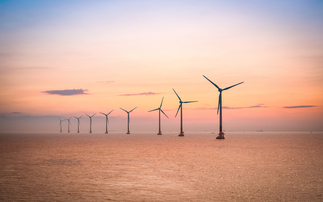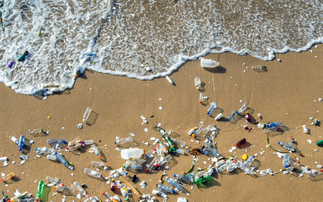Israel, Chile, Uruguay, Peru and Congo among latest flurry of INDC submissions
The number of official national climate action plans submitted ahead of this December's Paris Climate Summit smashed through the 100 mark this week, as the UN's climate change secretariat received a flurry of new Intended Nationally Determined Contributions (INDCs) from national governments.
Over 30 INDCs have been submitted this week, after Brazil on Monday became the latest major economy to publish a climate action plan, pledging to cut emissions by 37 per cent against 2005 levels by 2025, climbing to a 43 per cent reduction by 2030.
The announcement was followed by a surge of new INDCs from Latin American, African, Middle Eastern, and island states, including Peru, Uruguay, Chile, Congo, Namibia, Mali, Burkina Faso, Israel, Lebanon, Vanuatu and the Solomon Islands.
Meanwhile, Jordan, Cabo Verde, Grenada, Barbados Vietnam, Mauritania, Cote d'Ivoire, and Benin all submitted revisions to their earlier INDC submissions.
UNFCCC chief Christiana Figueres announced yesterday that 130 parties had now filed INDCs with the body, further fuelling hopes the vast majority of countries will set out voluntary emission reduction plans and climate resilience strategies ahead of the Paris Summit.
The system of INDCs is widely seen as crucial to the growing sense of optimism surrounding the talks, with the framework of national emission reduction commitments expected to provide the basis for any new international emission reduction deals.
India is expected to file its submission this week, meaning all the world's major emitters and economies will have put forward proposals for curbing their emissions and mobilising clean tech investment over the next 15 years.
The latest wave of submissions includes a series of eye-catching commitments.
For example, Israel announced its intention to cut greenhouse gas emissions by 26 per cent against 2005 levels by 2030, while Peru, which hosted last year's UN climate summit, pledged to cut emissions by 30 per cent against a business as usual scenario by 2030.
Meanwhile, Ukraine announced it would not allow greenhouse gas emissions to rise to more than 60 per cent of its 1990 emissions by 2030, which still leaves it room to see emissions increase, although the government also noted its efforts to cut emissions had been hit by the conflict in the country.
And Uruguay said it would aim to cut emissions intensity per unit of GDP by a quarter against 1990 levels by 2030, rising to a cut of 40 per cent if the country can secure "additional means of implementation" through international climate financing agreements.
Critics have warned the level of emissions reductions pledged to date through the system of INDCs are not compatible with the scale of cuts needed for the world to stand a reasonable chance of limiting temperature increases to 2C, as has been internationally agreed.
However, governments have argued the action plans will serve to mobilise much-needed low carbon investment, while a growing number of countries are now pushing for a review mechanism to be included in any Paris agreement so that national emission reduction commitments can be strengthened over time.
This article is part of BusinessGreen's Road to Paris hub, hosted in association with PwC









